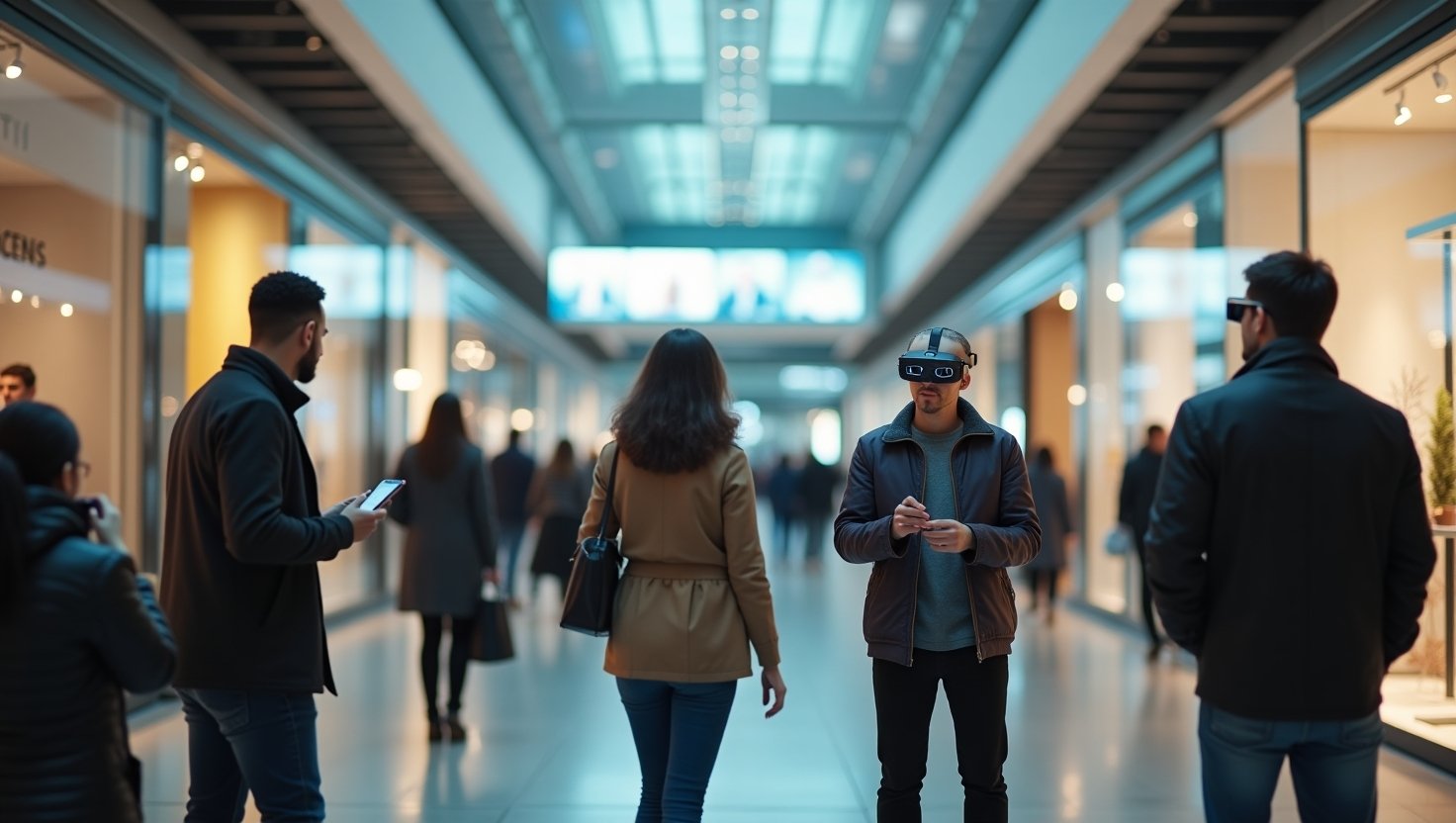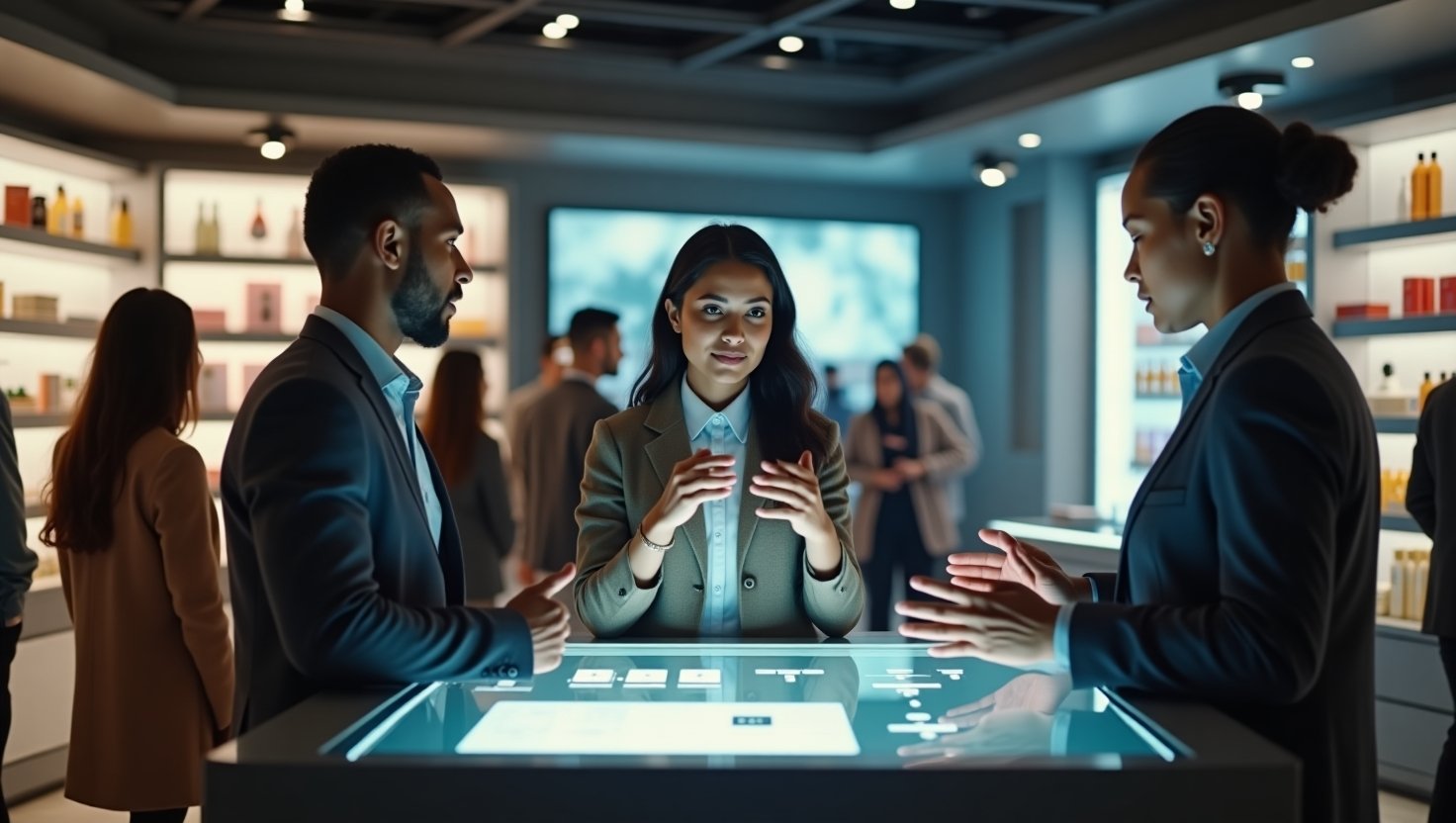AI and Consumer Habits: The New Landscape of Retail
The retail industry is undergoing a seismic transformation, driven primarily by artificial intelligence (AI). Innovations are not only changing how consumers shop but also why they make the choices they do. This evolution is reshaping consumer habits, often influenced by podcasts, influencers, and emerging retail trends. As we look deeper into this topic, we’ll explore the roles and implications of these shifts and ponder the future of retail in a world increasingly governed by technology.
The Impact of AI on Consumer Behavior
Artificial Intelligence is dramatically changing consumer interaction with retail environments. By integrating AI throughout various operations, companies like Dollar General and Walmart optimize everything from supply chain logistics to personalized customer experiences (Retail Dive). For instance, Walmart’s AI-powered shopping tools, particularly during the holiday season, demonstrated a 25% increase in in-store spending by app users (Retail Dive).
To understand this shift, consider AI as a digital concierge, personalizing every aspect of a customer’s journey—much like a Netflix algorithm recommending shows based on past viewing habits. This personalization makes AI an indispensable ally in crafting shopping experiences that are tailored but also intuitive.
The Role of Influencers and Podcasts in Retail
Beyond AI, influencers play a pivotal role in shaping modern consumer habits. As digital personalities with significant sway, they can shift retail trends almost overnight. Podcasts serve a dual purpose by educating and engaging audiences, providing brands with valuable data-driven insights. For example, the podcast series by Simon-Kucher focuses on how both AI and influencers are reshaping the retail landscape, offering businesses a roadmap to adapt (Retail Dive).
Imagine the influence chain: an influencer promotes a product, driving immediate online interest, which is then analyzed by AI systems to optimize marketing strategies and inventory management. The synthesis of human creativity with machine efficiency creates a powerful nexus for retail innovation.
Strategies for Retail Adaptation
To stay relevant and competitive, businesses need to embrace these technological and social shifts. Here are some key strategies:
– AI Integration: Implement AI at every stage of the consumer journey—from customized recommendations to dynamic pricing models that adjust based on market demand.
– Leveraging Influencers: Collaborate with influencers to reach niche markets more effectively and authentically.
– Podcast Engagement: Develop or sponsor podcasts to enhance brand visibility and consumer loyalty.
A great analogy for this adaptation could be likened to steering a ship through an ever-changing ocean of consumer demand and technological capability. Retailers must constantly calibrate their strategies to navigate these waters successfully.
Future Implications and Forecasts
Looking to the future, the retail landscape is poised for even more profound changes. Generative AI tools are already set to revolutionize holiday shopping experiences, with nearly two-thirds of consumers planning to use these technologies (Retail Dive). As such technologies become mainstream, the expectation is for them to bring about smarter, more efficient, and personalized retail experiences.
Moreover, as more organizations like Dollar General and Walmart integrate AI into their operations, we can anticipate a retail environment that maximizes both consumer satisfaction and operational efficiency. Indeed, these advancements are only the beginning of a transformative era—a future where AI not only supports but predicts consumer needs with unprecedented accuracy.
In conclusion, AI and the digital social ecosystem are teaching retailers to think differently about how they engage with consumers. As these technologies evolve, so too will the retail strategies that harness them, pointing towards an exciting and innovative future for the industry.










